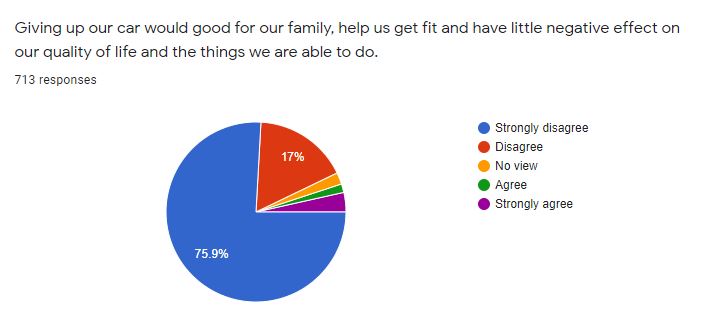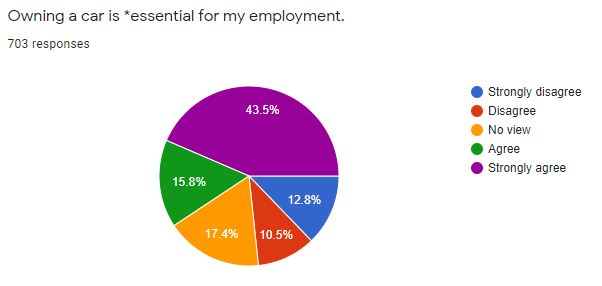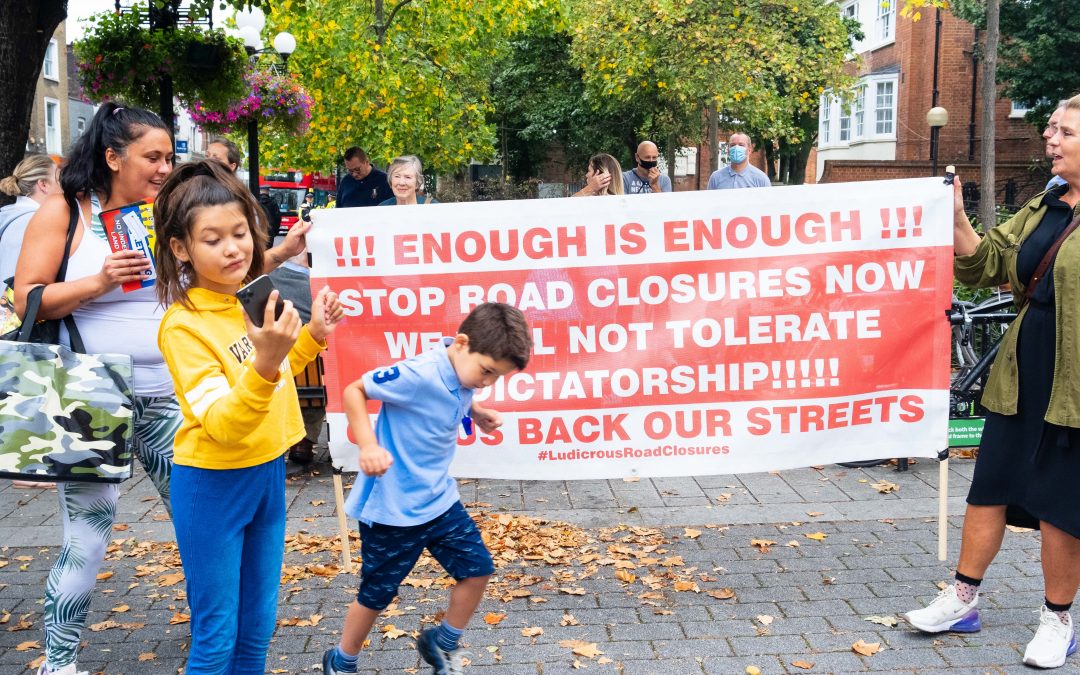Government-backed council road closures are hitting young working mothers, carers and their families hardest.
The architects of road closures that have made the news over the past few months, portray motorists as irresponsible rat-runners making millions upon millions of miles in ‘unnecessary journeys’. Roadblocks and Low Traffic Neighbourhoods (LTNs) were introduced last year by councils across London, and other towns and cities, under cover of Lockdown, without notice or consultation. Such drastic measures were necessary they say, to protect children and communities from selfish drivers using neighbourhoods as cut-throughs. Now, nine months on, what have we learned?
In East London, the Horrendous Hackney Road Closures (HHRC) group was formed in September last year by a group of young mothers and carers, and is now the largest anti-road closure group in anywhere in the UK. The group has more than 7000 members; not surprising given that Hackney Council’s road closures programme is the most drastic anywhere in the UK. Hackney Council says drivers are minority in the borough and should be put at the bottom of the ‘pecking order’. Council bosses have branded protesters as thugs, bullies, ‘birthers’ (born ’n’ bred East Londoners) and degenerates, representing only a self-interested, bigoted minority.
“The council and pro-LTN groups have been consistently demonising drivers and misrepresenting who we are.” Says Josie Hughes from the group. So the campaign group put together a survey to help dispel some of those myths, but also to find out a little more about its rapidly growing membership and why they choose to drive. “We kept the questions as objective as possible, we avoided asking about people’s views or feelings about road closures”. Says Josie.
More than 700 residents took part in the online survey, which was live throughout November and December last year. Sixty-six per cent of respondents were women. “We already knew from our Facebook group stats that women were the majority in every age category, from 17 to 70.” Explains group member Ruth Parkinson. “Clearly the issue of road closures is particularly hard-felt among women.”
The survey asked about how important owning a car was to the life and wellbeing of their family. Could they forfeit their car without it harming family life? The answer was a resounding no. Ninety-three per cent believed that, “giving up our car would be detrimental to family life.”

Many women today rely on their cars to help them with a myriad of responsibilities, including childcare, schooling, shopping and household tasks, and of course, holding down a job. That’s not to mention those caring for elderly relatives or dealing with disabilities. Some of the many comments in the survey illustrate this very well.
“I’m a single mum, self-employed as a cleaner and I have to drive to my clients, due to all the necessary equipment I use. I also care for my disabled grandad who lives in another borough. I take him for medical appointments and take care of him. Without a car I simply would not be able to work, be a mom and a carer all at the same time.”
“We are a large family of adults who share a car. I need access to the car as I do the household shopping, but also to take my elderly parents for appointments. Some of my extended live locally but others live in different parts of London, are are not easy to get to on public transport. Our family is our support system, especially now with elderly relatives.”
“So many women are performing a precious daily balancing act which they can only do with the time-saving convenience of a car.” Says Ruth. “Cars have opened up so many possibilities for women and their families.”
Still politicians and policy makers are certain they know what’s best for us. These road closures are for our own benefit – we just don’t realise it yet. That’s why they employ ‘nudge’ techniques in an attempt to ‘modify behaviour’ rather than actually engage with the residents who elect them. They regard residents as irrational and selfish. Department for Transport states clearly that road closures and LTNs are about modifying and ‘changes will help embed altered behaviours and demonstrate the positive effects of active travel.’
Politicians, national and local are using Covid-19 as cover to abandon any semblance of democratic participation. When consulted in 2016, Hackney residents rejected, by almost 70 percent, proposals to close a number of roads. During Lockdown the council closed these roads anyway. Hardly surprising then that one of those most responsible for closing Hackney roads, former transport boss Cllr Jon Burke, said he had no interest in consulting ‘rat-runners’ and relished his new-found powers to overrule the wishes of residents.
The survey asked about other reasons Hackney residents have for driving. Seventy-nine per cent said they use their car regularly to help others outside of their immediate family – elderly neighbours, friends etc – to do things they would otherwise find difficult.

“We underestimate the usefulness of our cars as a community resource.” Says Ruth. “Many of our neighbourhood are held together by informal networks of helpers, carers, companions and shoppers. So often the car is an essential part of that equation.
Over the years I’ve used my car for work, to get myself, and colleagues, to and from work, for school and child care drop-off, shopping, ferrying my mum around, taking neighbours to hospital, rescuing stranded teenagers, going to weddings, funerals, christenings, picking family or friends up from airports, train stations, to help friends move house. The list is endless.”
The council say their roadblocks and LTNs are helping to discourage short ‘unnecessary’ car journeys of one or two kilometres, leaving the roads clear for those who most need them. The reality is quite the reverse. Quiet residential, and even school streets have become gridlocked, sometimes for hours at a time.
Road closures have left many elderly and disabled residents stranded in their homes; massively increased journey times, left people struggling to get to work, hospital appointments, care visits, and pushed many local businesses to the brink of failure.
The motor car may have fallen from favour with today’s political and policy leaders, preoccupied with carbon-reduction targets and visions of a harmonious Green utopia, but it still plays a hugely important role in the lives of many ordinary people. Cars bring pleasure, freedom and convenience to millions of us. To view them as little more as dangerous carbon-emitters driven by selfish, lazy rat-runners, makes for narrow, divisive politics, short-sighted policy.
Read an edited version of this article in the online journal spiked!

